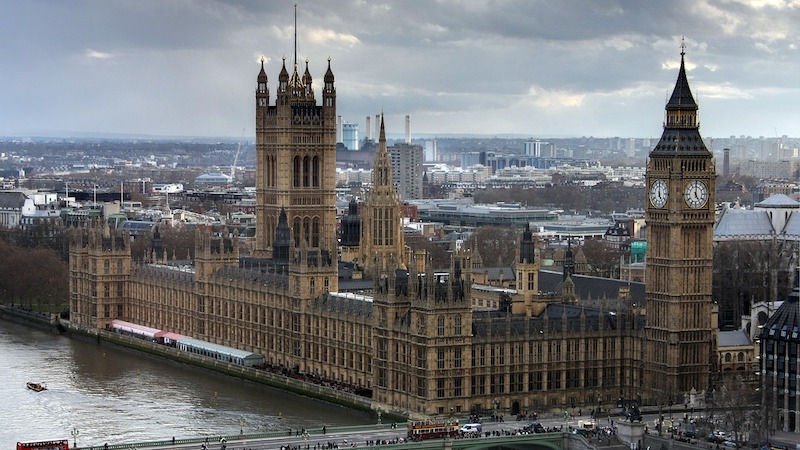The UK will stop warming the global climate by 2050 and urge other countries to follow, under independent advice published on Thursday.
In a 277-page report commissioned by the government, the Committee on Climate Change (CCC) called for legislation to set a path to net-zero emissions across the economy.
If the government adopts the advice – as is widely expected – its targets would be world-leading, the committee said. It would exceed the average global effort needed to give a 50% chance of averting temperature rise above 1.5C – the stretch limit of the Paris Agreement.
“We [Britain] have been responsible for the biggest segment of climate change that has happened in our world to date,” said committee chair John Gummer, at a press briefing.
“We need to be responsible not only for the leadership to overcome those challenges but we have the opportunity to lead the new industrial revolution that will be the basis of the economy of which we talk.”
Belt and Road: Multiple coal deals emerge from China’s ‘green’ investment summit
The business and energy ministry said it would respond “in due course” to the recommendations. “Few subjects unite people across generations and borders like climate change and I share the passion of those wanting to halt its catastrophic effects,” said secretary of state Greg Clark in a statement. “This report now sets us on a path to become the first major economy to legislate to end our contribution to global warming entirely.”
By some measures of fairness, explored in the report, the UK as a rich country and historic high emitter should make the shift to a carbon neutral economy faster. Activist movement Extinction Rebellion is calling for a 2025 net-zero target.
The committee advised a significantly earlier carbon neutral date “does not currently appear credible”, based on existing technology and behavioural trends.
That could change if other sectors replicate recent dramatic cost reductions in solar power and battery technology, the report said – or if society embraces more radical lifestyle changes.
“It is perfectly possible that in future, we may want to revisit that, but for now 2050 is the correct date,” said chief executive Chris Stark. “There is a moment here for the UK to set a target and to have a lot of leverage on the global questions of how quickly the rest of the world can reach net-zero.”
The only other country considering a similarly ambitious law, according to the committee’s analysis, is France. Both plans cover all greenhouse gases, all economic sectors including international aviation and shipping and do not rely on buying carbon credits from other countries to meet their obligations.
Sweden and Norway have earlier net-zero targets – 2045 and 2030 respectively – but do not tick the last two boxes. Denmark, California and New Zealand are unclear on whether their net-zero plans cover all greenhouse gases or just carbon dioxide. A handful of others have ambitious goals but have not enshrined them in law.
Britain can set an example to the rest of the EU and others, the report said: “Setting a strong net-zero target will enhance the UK’s diplomatic influence, and it should continue to use this positively, to strengthen governance for bioenergy and removals, on sustainable finance and potentially as the host of the key UN talks in 2020.”
Chile’s ‘Blue Cop’ will push leaders to protect oceans to heal climate
At the Cop26 climate summit in 2020, which the UK is bidding to host, countries will be expected to submit updated climate plans. In September, countries at a special meeting in New York have been asked by the UN secretary general to show how they plan to meet the targets of the Paris Agreement. An ambitious display from the UK would turn up the heat on others.
A UK target cannot stand alone, the committee said, and needs to be backed by stronger policies. Its previous analysis showed the UK is set to fall short of existing “carbon budgets” from the mid-2020s onwards.
A ban on new petrol and diesel cars should be brought forward from 2040 to 2030, tree-planting accelerated and low carbon heating and farming pursued with more urgency. The plans also count on capturing CO2 from heavy industry and pumping it underground, using technology that has struggled to take off.
“The [Conservative government’s] clean growth framework has all the right things in it, but not nearly the right level of ambition,” said Stark.
In contrast to previous plans to cut emissions 80% by 2050, the net-zero scenario demands active participation of citizens.
Suggestions include choosing to walk, cycle or take public transport instead of driving; flying less; installing household insulation and setting thermostats at 19C or lower; eating less red meat and dairy; repairing and sharing products; and raising awareness in workplaces and schools.
“We have to get the support of the whole nation if we are going to deliver this,” said Gummer.
Climate emergency declarations spread across UK after Extinction Rebellion
The report comes amid an upswell of public concern on climate change. School strikes inspired by Swedish teen Greta Thunberg and direct action by Extinction Rebellion propelled the topic onto newspaper front pages and TV bulletins in April.
The opposition Labour Party and devolved administrations in Scotland and Wales have adopted the activists’ “climate emergency” rhetoric. And on Wednesday the UK parliament voted through a Labour motion to declare a symbolic “environment and climate emergency”.

Climate activist Greta Thunberg visits an Extinction Rebellion protest in London last week (Photo: Greta Thunberg/Twitter)
Advocates draw on last year’s UN blockbuster science report spelling out the increased dangers posed by 2C global warming compared to 1.5C.
Climate minister Claire Perry, who commissioned the CCC advice in October, was moved to defend the government record in parliament last week.
Welcoming the “passion and fervour” of protesters, Perry said: “I hope those who have taken their passion public will continue to express their views without… undermining the consensus we will need to support further, bolder action.”
In France, the government retracted a diesel tax hike after it sparked a backlash from the “yellow vest” movement; while Germany’s attempts to phase out coal have been fraught by resistance from mining unions and business.
We need your help… Climate Home News is an independent news outlet dedicated to the most important global stories. If you can spare even a few dollars each month, it would make a huge difference to us. Our Patreon account is a safe and easy way to support our work.
Taking inspiration from the US campaign for a “green new deal”, Labour is proposing a “green industrial revolution”, emphasising green jobs. However parts of the party continue to back contentious brown job-creating projects like expansion of Heathrow Airport and a new coal mine in northern England.
Farhana Yamin, climate lawyer-turned-activist with Extinction Rebellion, told Climate Home News: “Everyone who is declaring [a climate emergency] has to understand that fossil fuels have to be phased out very, very rapidly. Any new investment in fossil fuels is out and the question is how – quickly and fairly – to phase out what we have got.”
On the timing of net-zero, Yamin said “we won’t really know until we do it” what date is possible and “the important thing is to start now”.
